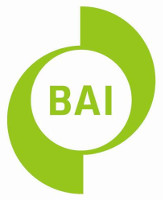MPEG-4 chosen for Irish Digital Terrestrial TV
Thursday, July 31st, 2008
Minister Ryan announces end of Digital Terrestrial Television trial; Results of trial published; MPEG4 technology chosen for Irish market; National rollout to begin in autumn 2009
DUBLIN — Communications Minister Eamon Ryan today announced that Ireland’s first trial of Digital Terrestrial Television (DTT) will end as of Friday, 1st August 2008. The Minister announced the results of the trial, the technology chosen for digital television in Ireland and a timeline for national rollout.
The trial, which has been in operation since August 2006 was operated by the Department of Communications, Energy and Natural Resources provided DTT to 1,000 participants, industry stakeholders and private households, in counties Louth and Dublin.
The trial was used to test a range of different technologies, including older technology currently used in the UK and the latest DTT technologies which can provide more television channels and high definition channels. The trial also tested new services such as a digital teletext service developed by RTÉ, a high definition TV service, and accessibility services, specifically audio description. As well as testing technologies, the aim of the trial was to identify issues associated with national rollout of digital television and help provide solutions to these issues.
Survey – key findings
82% of those involved in the trial would recommend digital television to a friend, citing reception and picture quality as the main reasons for so doing and 84% were satisfied with the overall service.
92% of participants in the trial reported satisfaction with the sound quality of digital television, 90% found the picture quality high and 88% found the technology easy to use.
Technology chosen
As a result of the trial, Ireland will follow countries like France, Sweden, Norway and Estonia in adopting the latest digital television technology – MPEG 4 – which is capable of offering high definition services and more content. This means that Ireland will not be adopting the standard currently used in the UK. Commenting on this decision Minister Ryan said that “The new technology is a better option as it offers more scope for future expansion – more space for content, and high definition services. Furthermore, most of the UK receiver equipment tested as part of the trial did not work properly or at all on the Irish DTT network.
Under the Broadcasting (Amendment) Act 2007, RTÉ is responsible for developing the national DTT service to provide access to the Irish TV channels, free to air. Explaining the decision to use the MPEG4 technology, Cathal Goan, RTÉ’s Director General said -“MPEG 4 is the technology of choice for DTT as it allows space for more content and for high definition channels. We want to ensure that our viewers get the best value for money in the switch to digital television – more channels, more services and better quality pictures.’
RTÉ networks limited has started to build this network and initial services are due to commence in autumn 2009. In the meantime, Mr. Goan has indicated that RTÉNL will provide a DTT network at Three Rock and Clermont Carn to test and develop new services, from 4th August 2008.
With the conclusion of the trial, the decision on technology and the announcement by the Broadcasting Commission of Ireland (BCI) of the winners to provide commercial digital television, Minister Ryan said that “we have reached the end of the beginning of the digital terrestrial television process. Now we move to national rollout”.
“For digital television to succeed as a replacement for the analogue services it needs to be accessible to all. It must be simple to set up and user friendly, offer more high quality services and channels and the receiver equipment must be affordable and easy to obtain. My Department will be working to ensure manufacturers and retailers work in tandem with RTÉ and the new BCI licensee to ensure that a range of digital television receivers are available in advance of the autumn 2009 launch date.”
Commenting on the potential benefits for Irish consumers, and those in the communications sector from the advent of digital television Minister Ryan said, “This trial has provided an opportunity for all of us to learn about digital television and what it can do. I am pleased at the approach being taken by RTÉ in ensuring that viewers reap the benefits of digital television and I am also pleased at the successful completion of the BCI competition. There is now a good framework in place for developing a successful digital television network in Ireland. There is still work to be done, however. The lessons learnt from this trial should be further developed in the roll out of national digital television services.’
Finally the Minister expressed his appreciation to all those who had participated in the trial – the trial participants, the content providers and those directly involved in the operation of the pilot – BT, NEC, RTÉ, RTÉNL, NCBI, NDA, CEDA, Amárach Research and Mason Analysys. The Minister said, ‘Everyone associated with the trial has helped pioneer a technology which is new to Ireland.’
National rollout and Government information campaign
“Central to the success of national rollout will be a public information campaign by the Department explaining digital television to the nation. My Department will begin this national information campaign in March 2009, in advance of the autumn 2009 launch date. Analogue switch-off must be complete by 2012.
We have a tight timeframe but I am confident that with all players working together and with public buy-in that digital television in Ireland will offer new and exciting content and technology to the Irish viewer”, concluded Minister Ryan.
Latest News
- Barb to start reporting TV-set viewing of YouTube channels
- SAT FILM selects multi-DRM from CryptoGuard
- Qvest and ARABSAT to launch OTT streaming platform
- ArabyAds & LG Ad Solutions partner with TVekstra in Turkey
- Freeview NZ satellite TV service to move to Koreasat 6
- Comscore expands YouTube CTV measurement internationally
